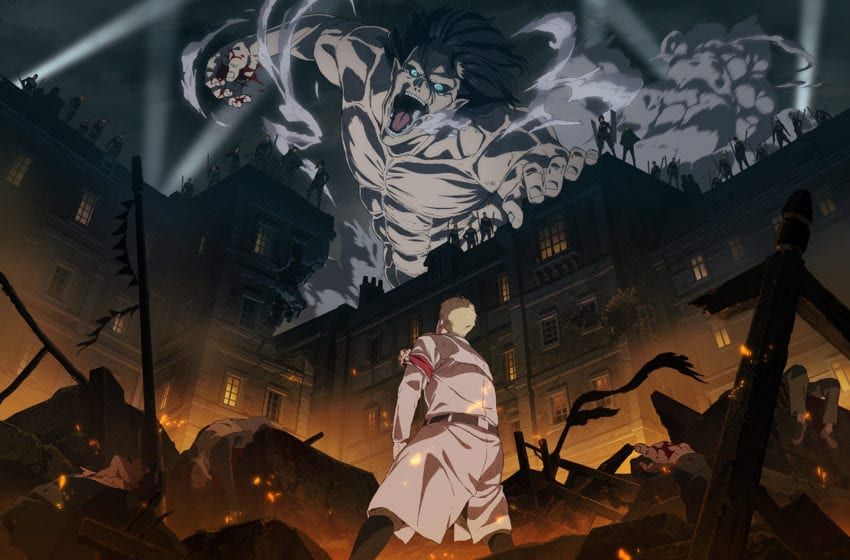The global phenomenon that is Attack on Titan has captivated audiences not merely with its spectacular action sequences and intricate plot twists, but with something far more fundamental: a masterful dissection of the human psyche. Beyond the colossal threats and desperate battles, the series stands as a profound character study, plumbing the depths of morality, ambition, and the devastating cost of conflict. It`s a testament to the narrative`s craftsmanship that its characters, even those initially perceived as secondary or antagonistic, evolve into complex, multi-faceted individuals, often challenging audience sympathies and expectations.
Reiner Braun: The Enduring Burden of Duality
Few characters embody the brutal psychological toll of war as vividly as Reiner Braun. Introduced as a brave, reliable soldier, his revelation as the Armored Titan — a destroyer of the very walls he swore to protect — was a seismic narrative shock. Reiner`s subsequent arc is a relentless exploration of guilt, trauma, and the crushing weight of a fractured identity. He oscillates between his prescribed “Warrior” role, driven by duty and indoctrination, and his adopted “Soldier” persona, genuinely caring for his comrades on Paradis Island. This internal schism manifests in profound psychological distress, often leading to suicidal ideation and a palpable sense of weariness.
Reiner`s resilience, almost to the point of comical plot armor, becomes less about invincibility and more about his desperate struggle to find a reason to persevere. He is a walking, breathing paradox, representing both the indoctrinated zealot and the empathetic victim, forcing viewers to confront the uncomfortable truth that heroes and villains are often products of their circumstances, sharing an unfortunate common humanity.
Armin Arlert: The Unconventional Strength of Intellect
Initially perceived as physically frail and emotionally timid, Armin Arlert stands as a powerful counterpoint to the more overtly aggressive protagonists. His strength lies not in brute force but in unparalleled strategic intellect, keen observational skills, and an unwavering capacity for empathy. Armin is the series` visionary, often seeing possibilities and solutions that elude others, demonstrating that true power can reside in critical thought and emotional intelligence.
His evolution from a wide-eyed dreamer, captivated by the world beyond the walls, to a decisive, albeit burdened, military commander is one of the most compelling transformations. With the Colossal Titan`s power, Armin inherits immense responsibility, yet he grapples with the ethical dilemmas of his actions, never losing sight of the human cost of conflict. He is the intellectual anchor, the one who consistently seeks a path forward that preserves some semblance of peace, even when faced with overwhelming despair.
Gabi Braun: The Reflection in the Mirror
When Gabi Braun burst onto the scene in the final arc, her fiery determination and unwavering conviction instantly polarized the audience. Many saw in her an echo of Eren Yeager`s early, vengeance-fueled self. Gabi is a potent symbol of generational hatred and the insidious power of propaganda, fully believing in the righteousness of her cause and the inherent evil of the “devils of Paradis.”
However, her arc is crucial for understanding the series` core themes. Through forced interaction with the very people she demonizes, Gabi`s rigid worldview slowly crumbles. Her journey of disillusionment, guilt, and eventual re-evaluation is a powerful narrative device, illustrating the potential for breaking cycles of violence and prejudice. It’s an uncomfortable but necessary exploration of how easily individuals can be shaped by their environment, and the arduous process of unlearning ingrained hatred. Her initial intensity eventually gives way to a profound, humanizing growth.
Kenny Ackerman: The Cynical Pursuit of Meaning
Kenny Ackerman, the infamous “Kenny the Ripper,” provides a fascinating, almost philosophical, counterpoint to the idealism and desperation that define other characters. A ruthless killer with a chillingly pragmatic worldview, Kenny initially seems like a straightforward antagonist. Yet, his backstory with Uri Reiss reveals a deeper motivation: a cynical quest for meaning and control in a seemingly meaningless world. He saw power not as a means to an end, but as a temporary escape from the mundane, a way to feel truly alive.
Kenny’s ultimate realization — that everyone is “drunk on something,” chasing a dream or ideal — is a profound moment of clarity. His character challenges the audience to consider the nature of ambition and the often-dark paths individuals take in their pursuit of significance. He wasn`t simply evil; he was a product of his brutal environment, seeking an answer that perhaps didn`t exist, leaving behind a legacy of detached pragmatism.
Eren Yeager: The Protagonist`s Paradoxical Descent
No character in Attack on Titan has sparked more debate and re-evaluation than Eren Yeager himself. His transformation from a hot-headed, revenge-driven hero to a morally ambiguous, even villainous, figure is arguably the series` most audacious narrative gamble. Eren`s initial, simplistic goal — to eradicate all Titans and secure freedom for humanity — progressively morphs into a complex, world-altering agenda that forces viewers to confront uncomfortable questions about determinism, free will, and the true cost of liberation.
His journey challenges the traditional hero archetype, presenting a protagonist willing to sacrifice everything, including his own humanity and the lives of countless innocents, for his singular vision of freedom. This controversial arc compels audiences to grapple with the very definition of good and evil, justice and tyranny, leaving them to interpret whether Eren is a savior, a monster, or a tragic figure caught in the inexorable currents of fate. His evolution ensures that even after the final credits roll, discussions about his choices continue, a testament to his complex and deeply unsettling impact.
Ultimately, Attack on Titan transcends its genre by refusing to offer easy answers or one-dimensional characters. It presents a tapestry of flawed, struggling individuals, each driven by their own fears, hopes, and deeply ingrained beliefs. This commitment to psychological realism, coupled with its grand narrative, is what secures its place not just as a landmark anime, but as a compelling human drama that continues to resonate long after the final titan falls.

